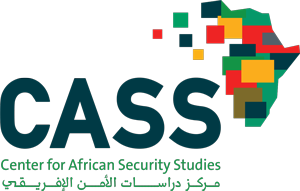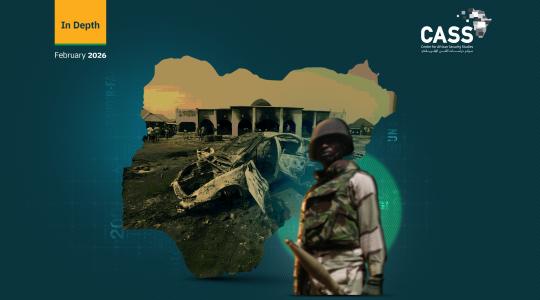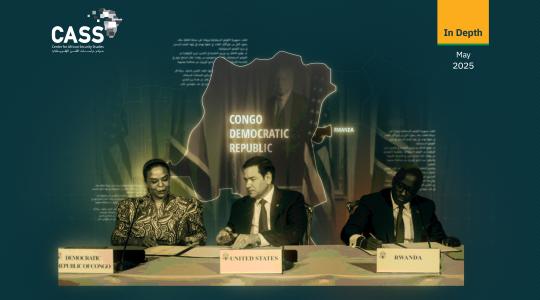Algeria’s shooting down of a Malian drone near the countries’ shared border on April 1 has sparked a new crisis in a difficult bilateral relationship. While each side has an interest in cooperating with the other against shared threats, efforts to resolve their latest crisis are complicated by regional geopolitical shifts.
Historical Context and Recent Shifts
Algerian-Malian relations are governed by a series of complex geographic and historical factors. The two countries have intersecting interests across the Sahel region and the Sahara, an area that has faced chronic unrest for decades. Algeria and Mali share a border that stretches across more than 1,300 kilometers (800 miles) of desert, as well as a long history of cultural and ethnic interactions, particularly in the northern regions of Mali with their Berber and Tuareg populations.
Since the crisis in 2012, when an alliance of separatist groups and militants seized control of large areas of northern Mali, Algeria has played a key role in mediating between rebel groups and the Malian government. Its efforts culminated in the 2015 Algiers Accords between the Malian government and a range of northern political and military movements which later coalesced as the Strategic Framework for the Defense of the People of Azawad (CSP-DPA).
However, the agreement later faltered as Mali accused Algeria of supporting separatist factions, particularly after the CSP-DPA transformed into the Azawad Liberation Front (MNLA) and adopted more strident rhetoric against Bamako.
A bigger change came with the military coup led by Colonel Assimi Goïta in 2021, who proceeded to position Mali in the Russian-Turkish axis and severe his country’s ties with former colonial ruler France. This led to the withdrawal of French forces from the Sahel, opening the way for Russia’s Wagner Group to deploy in the country and for Bamako to step up its military cooperation with Ankara. All this stoked Algerian fears of worsening chaos along its southern border.
Shared Security Challenges
Despite their differences, Algeria and Mali alike face an array of common, intertwined security threats, represented by the activity of militant groups and the growth of cross-border smuggling of weapons, drugs and human beings. Groups such as the jihadist Front for the Victory of Islam and Muslims (known as JNIM) and the Islamic State in the Sahel are active along the border, making security coordination between Algiers and Bamako non-negotiable.
However, political tensions between the two countries, exacerbated by Mali’s accusation that Algeria supports Azawad Liberation Front (FLA) separatists, have cast a long shadow over their security efforts, threatening to reignite lawlessness and chaos along their shared frontier. The Kidal border region has thus become a gray zone, beyond effective government control, allowing armed groups to expand northward into Algerian territory.
In this context, the downing of a Malian military drone inside Algerian territory on April 1 sparked a crisis in their bilateral relations. Algeria considered the aircraft’s presence a flagrant violation of its sovereignty, while Bamako initially denied the incident before going silent on the subject. The ensuing diplomatic escalation has exposed the fragility of their relationship and the sensitivity of the regional context.
Political and Diplomatic Tensions
In March last year, several members of the G5 Sahel regional bloc (Mali, Burkina Faso, and Niger) withdrew their ambassadors from Algeria. This followed escalating disagreements over Algeria’s mediation in the Malian crisis, accusations by Bamako that Algeria was supporting armed groups, and reservations by all three countries regarding Algeria’s relations with France.
This followed steps by Algeria that Mali’s rulers saw as provocative, such as hosting delegations from Azawad movements in Algiers and providing unofficial support for negotiation mechanisms that the Malian junta rejects.
These tensions also reflect the international and regional alignments of each side. Algeria tends to maintain a balance between its ties with Moscow and Paris, but is unsettled by Russia’s unrestrained penetration into Mali, through the Wagner Group, which it views as a threat to its own stability. Bamako, on the other hand, views Moscow as a strategic partner in rebuilding the Malian army and combating terrorism.
Future Ties and Prospects for Cooperation
Despite the escalating political tensions between Algeria and Mali, their relationship remains subject both to geographical realities and to the demands of regional security. Mali recognizes that its northern neighbor remains the regional actor best placed to facilitate settlements with armed movements in the north, while Algeria views Mali’s stability as vital in preventing militants from gaining a foothold in its own southern hinterland. This mutual dependence, despite its complexities, imposes a delicate balance that it would be hard to break without each party suffering a strategic cost.
Western think tanks have warned that any escalation between the two countries could create a dangerous security vacuum that would only benefit armed groups operating in the Sahel. This leaves both Mali and Bamako little choice other than to overcome their immediate political differences. Both must work to reactivate security and military coordination mechanisms in a flexible and realistic manner, taking into account the sensitivity of the situation and the nature of the shared threats they face.
That said, the situation has become more complex with the emergence of new geopolitical alignments in the region, namely Goïta’s alliances with the Wagner Group and Ankara versus the Algeria-Niger-Mauritania axis. Coming amid a frenzied international race to dominate the region’s rich reserves of gold, uranium, and rare metals, this growing polarization adds another layer of challenges to any attempt to rebuild trust between Algeria and Mali.
In this context, much will depend on Algeria’s ability to rebuild and reformulate its role as an honest broker that respects Malian sovereignty, and Algiers’ willingness to reassess its position on the Azawad movements, which no longer enjoy the international position they once did.
Algeria must also revise its diplomatic methods, moving away from traditional calculations of regional influence and opening up to alternative mechanisms for building confidence. This may involve bringing in a third party mediator, such as the African Union or a Sahel country that has not been directly involved in the dispute.
Time to Recalibrate
Algerian-Malian relations represent a classic case of the intersection of geography with history, and of interests with crises. While security challenges necessitate continued communication between the two countries, rapid changes in the regional balance of power demand that Algeria recalibrate its strategic approach.
Either Algeria will succeed in restoring its traditional role as a central regional player by leveraging its political and societal influence, or Mali will continue to reshape its alliances beyond the Algerian axis. In all scenarios, there remains an urgent need for a collective vision based on shared security and sustainable development as a foundation for any possible stability in the Sahel region.




